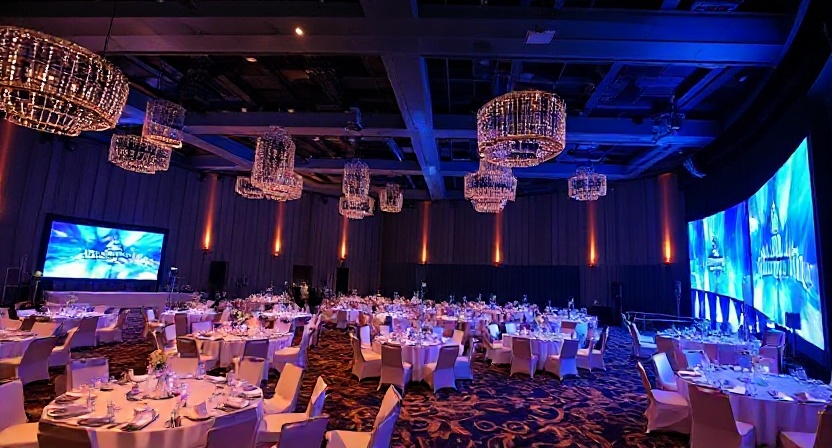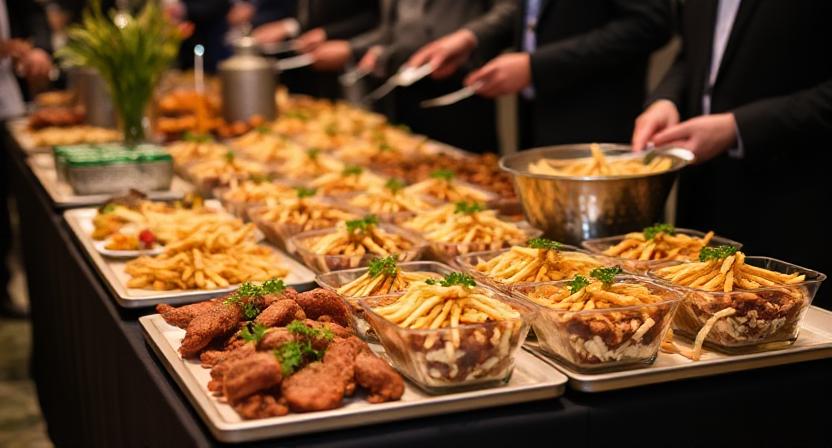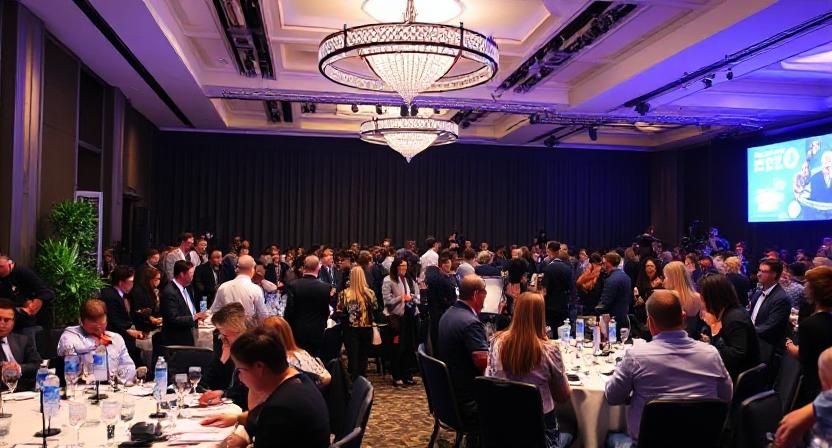Corporate events are a powerful tool to strengthen relationships, present products, or celebrate milestones. Planning a successful event requires attention to detail, clear objectives, and effective execution. Here are some essential tips to ensure your corporate event is memorable and impactful.
Define Clear Objectives
Start by establishing what you want to achieve with the event. Is it networking, team building, launching a product, or celebrating an achievement? Clear goals will guide your planning process and help measure success afterward.
Tip: Write down your objectives and keep them at the forefront during planning.
Choose the Right Venue

Select a venue that aligns with your event’s purpose and audience. Consider capacity, location, accessibility, and available facilities such as audiovisual equipment, Wi-Fi, and parking.
Suggestion: Conference centers, hotels, or unique spaces like galleries or outdoor venues.
Plan a Well-Structured Agenda
Create a detailed schedule of activities, including speeches, presentations, networking sessions, and breaks. Ensure the flow is smooth and engaging to maintain attendees’ interest.
Tip: Share the agenda in advance so attendees know what to expect.
Select Suitable Vendors and Suppliers
Choosing the right vendors is crucial for the success of your corporate event. These partners are the backbone of your planning process, ensuring that every detail—from the food to the technology—runs smoothly and aligns with your brand image and event objectives. A well-coordinated team of reliable vendors not only guarantees a seamless experience but also allows you to focus on engaging with your guests and delivering your message effectively.

Detailed Considerations:
- Catering:
Offer a menu that appeals to diverse tastes and dietary needs. Be sure to communicate any dietary restrictions such as vegetarian, vegan, gluten-free, or allergies. Collaborate with caterers who can provide customized options and high-quality presentation, ensuring that the food complements the event’s tone—whether formal, casual, or themed. Tasting sessions prior to the event can help in selecting the best menu. - Technology:
Reliable audiovisual equipment is essential for presentations, speeches, or entertainment. Confirm that your vendors have high-quality projectors, microphones, speakers, and screens. Additionally, ensure that the venue has strong, stable internet connectivity to support live streaming, interactive polls, or social media engagement. It’s wise to have technical support on-site to troubleshoot any issues quickly. - Decor:
Choose decor elements that reflect your company’s branding, theme, and message. This includes table settings, signage, backdrops, and centerpieces. Working with experienced decorators ensures that the visual design is cohesive and impactful, creating an environment that resonates with your audience and reinforces your corporate identity. - Entertainment:
Select entertainment options that align with your event’s purpose and audience. This could include live music, keynote speakers, or interactive activities like team-building exercises. Consider engaging a professional MC or host to facilitate a smooth flow and keep energy levels high throughout the event.
Remember:
Good coordination and communication with your vendors are key to a seamless event. Establish clear timelines, confirm details regularly, and provide them with a comprehensive brief. Building strong relationships with your vendors not only reduces stress on the day of the event but also sets the stage for future collaborations.
Promote Your Event Effectively
Use multiple channels—email invitations, social media, company website, and direct outreach—to maximize attendance. Craft compelling messaging emphasizing the benefits of attending.
Tip: Send reminders and updates as the event approaches.
Incorporate Technology
Leverage event apps, registration platforms, or live polling tools to engage attendees before, during, and after the event. Technology can enhance interaction and provide valuable feedback.
Prepare for Unexpected Situations
Have contingency plans for technical issues, bad weather (if outdoor), or last-minute cancellations. Assign roles to team members to handle unforeseen problems efficiently.
Follow Up and Evaluate
After the event, gather feedback through surveys or direct conversations. Analyze what worked well and what could improve for future events.
Tip: Send thank-you notes to attendees and partners to foster good relationships.
Measure Success
Assess your objectives by reviewing attendance numbers, engagement levels, media coverage, or sales leads generated. Use this data to inform your next event.
Ready to Host a Memorable Corporate Event?
With careful planning, clear objectives, and attention to detail, your corporate event will leave a lasting impression on your attendees. Happy organizing!




